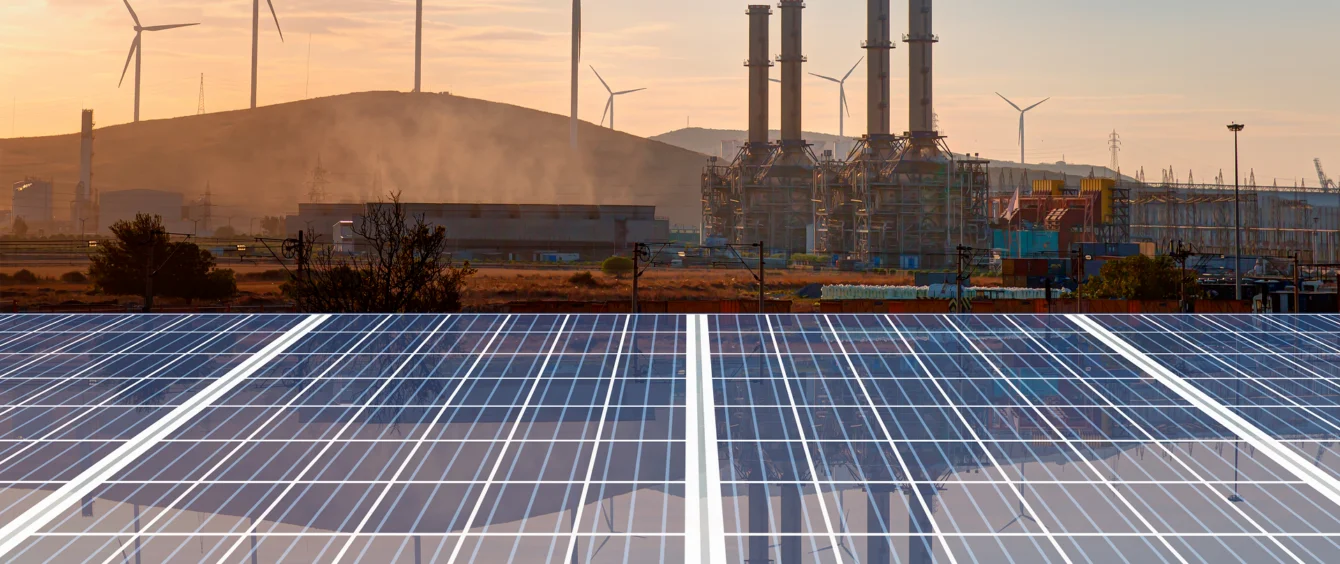Wind and solar electricity generation reached a record high in 2022, according to the Global Electricity Review 2023, published by thinktank Ember.
The two clean energy sources generated 12% of the world’s power last year, reducing the carbon intensity of global power generation to 436 gCO2/kWh, its lowest ever level. Low carbon energy sources in total accounted for 39% of power production worldwide, also a record, the report says.
At the same time, however, coal-fired generation rose by 1.1%, while gas-fired
generation fell only marginally by 0.2%. Overall, power sector emissions increased by 1.3%, also reaching an all-time high.
The problem is that while electricity generation is cleaner than ever, electricity consumption is growing. In short, more of everything was needed, and, as a result, power sector emissions still rose, despite the deployment of more renewable energy capacity.
Power sector emissions peak
Ember suggests that 2022 may prove to be a peak in power sector emissions, an important signal that the end of the fossil fuel age has begun.
It forecasts that at current rates of deployment, clean power growth will exceed new electricity demand in 2023, and power sector emissions will thus fall. This process will gather momentum each following year, so that, looking back, 2022 will be identified as the year in which power sector emissions finally topped out.
If realised, this would truly be an era defining moment in the energy transition.
Wider fossil fuel use
However, transport is more heavily dependent on fossil fuels than power generation and viable decarbonisation pathways for the sector as a whole are less clear.
Electric vehicle (EVs) sales are at record levels and show strong growth. But only in one segment of the transport market – passenger and light commercial vehicles – is growth in clean transport predicted to reduce oil demand in the short to medium term. A continued preference for SUVs has also offset the reductions in petrol and diesel use achieved by increased sales of EVs and other more fuel efficient vehicles.
BP’s recent Energy Outlook 2023, for example, sees oil demand plateauing over the next ten years, before declining, owing to continued use in heavy transportation (land, sea and air), as well as growth in the petrochemicals sector.
In its 2022 World Energy Outlook, the International Energy Agency (IEA) notes that petrochemicals remain integral to modern societies and to many energy transition technologies. It says petrochemical demand is set to be a major source of future oil demand growth.
Electricity demand growth will pick up speed
In addition, decarbonisation policies in other sectors of the economy will make it more difficult for renewables’ growth to outstrip new electricity demand.
Almost all of the decarbonisation pathways outside of the power sector depend heavily on electricity – industry switching to electric motors, EVs, green hydrogen and other low carbon fuel production, and home heat pumps – they all need low carbon power to be sustainable.
Higher electricity demand from decarbonisation in non-power sectors plus increased power demand from more normal factors, such as population growth and increased access to electricity services, mean the rate of renewable energy deployment needs to accelerate faster than today.
Climate change itself is also a driver of electricity consumption. More extreme weather increases demand for air conditioning and heating, and creates heightened levels of water stress, the response to which is often energy-intensive desalination plants.
It could not be clearer that more clean power generation is the foundation of a successful energy transition.
Geopolitical and economic upsets
Geopolitical and economic factors can also throw forecasts off course. The global financial crisis of 2008/09 reset the world’s emissions pathway because of a major decline in economic activity. The war in Ukraine was a major factor in reduced global gas use last year, but also contributed to the increase in coal consumption and an acceleration of renewable energy activity.
At this stage in the energy transition, a period of strong global economic growth sometime in the next decade could still push demand for all sources of energy, renewable and fossil fuels, higher, even in the power sector.
The uncertainties are significant. An apparent peak in global coal use in 2014, for example, was widely heralded as a historic turning point, but eight years later world coal consumption hit a new high.
Defining the end of the fossil age
The end of the fossil age might therefore best be defined as clear peaks in the use of coal, gas and oil across all sectors. These peaks have not yet occurred with any certainty and will only be evident with hindsight.
However, Ember’s suggestion that the falling intensity of global electricity generation is a sign of the beginning of the end certainly holds water. Electricity is powering the energy transition and the power sector leads all in its effort to decarbonise, relying on wind and solar power and enabling technologies like batteries and other forms of energy storage.
The bottom line is that only with much increased rates of renewable energy deployment can sufficient clean electricity be generated both to exceed new electricity demand and facilitate wider economic decarbonisation.
As outlined by roadmaps to a net zero carbon world by 2050, the end of the fossil age is on the horizon, but to achieve that end with certainty greater efforts are required.
Photo credit: © muratart, shutterstock.com
